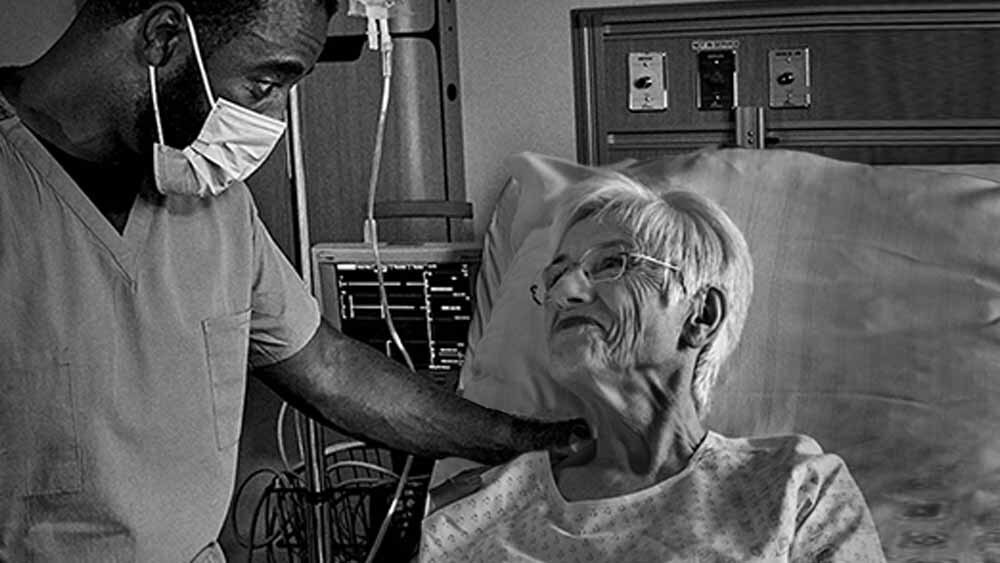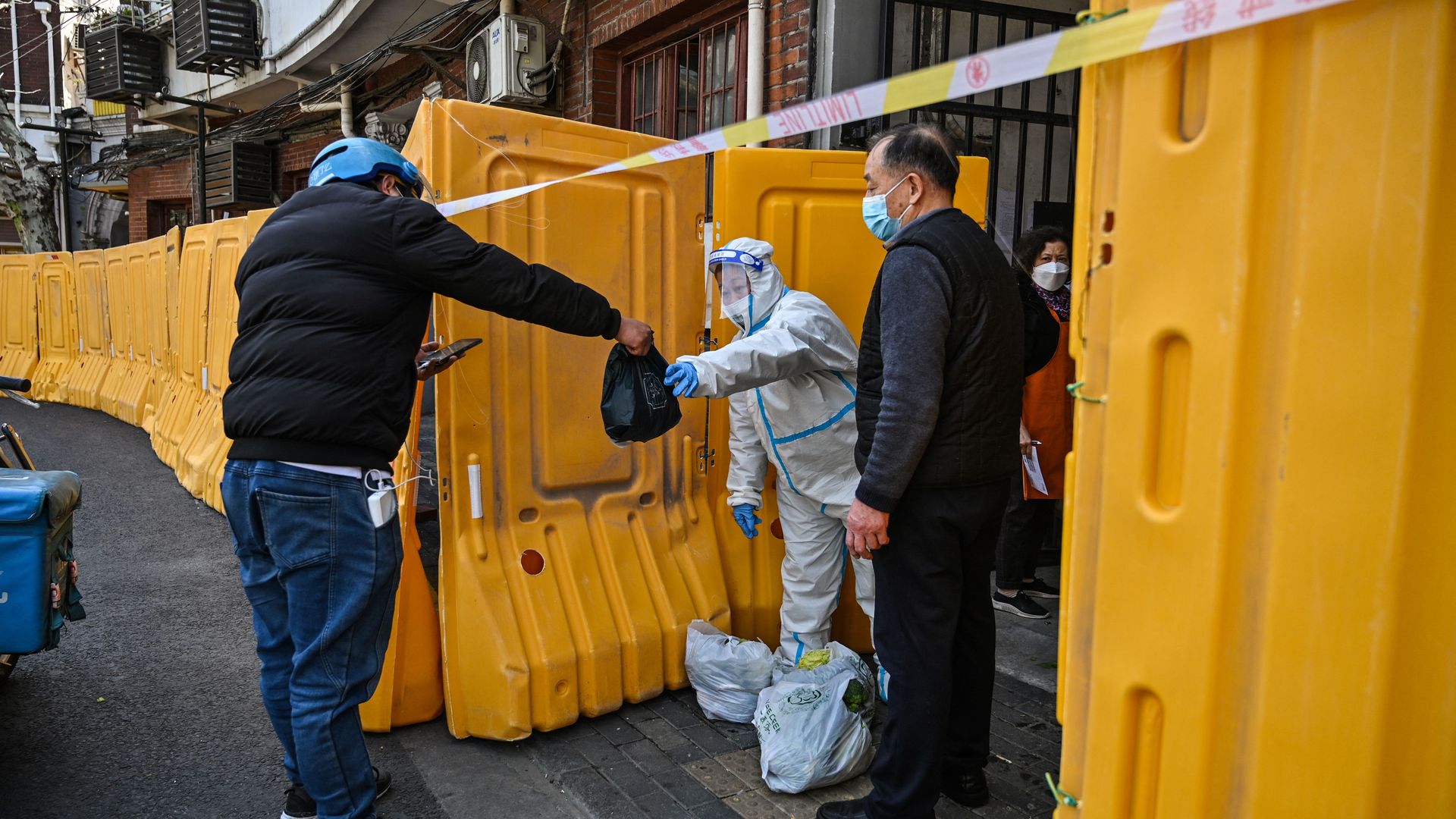| |
| |
| |
| Presented By HCA Healthcare |
| |
| Axios Vitals |
| By Tina Reed ·Mar 30, 2022 |
| Good morning Vitals readers. Today's newsletter is 815 words or a 3-minute read. 👉 Situational awareness: The House Energy and Commerce health subcommittee today holds a hearing on FDA user fees to fund medical device evaluations. - The must-pass legislation has big implications for clinical labs and makers of diagnostics and could serve as a vehicle for other health measures, Axios' Adriel Bettelheim writes.
|
| |
| |
| 1 big thing: America's choose-your-own-adventure vaccine approach |
 |
|
| Illustration: Annelise Capossela/Axios |
| |
| The choose-your-own-adventure vibe of the pandemic response is spreading to booster shots, with Americans 50 and older now having the option to get a fourth dose — without explicitly being encouraged to do so, Axios' Caitlin Owens writes. Why it matters: Many experts say that yesterday's FDA authorization makes sense as a precautionary measure, based on the limited data available and with the threat of new variants ever-present. But the policy could create more confusion around the long-term vaccination strategy when half of those eligible to be boosted yet to take the extra shot. The big picture: The authorization effectively lets individuals choose whether to shore up their immunity against the virus the same way they can now choose to mask or take other precautions. Between the lines: It's normal for vaccines' effectiveness against mild disease to wane over time, and boosting mainly to prevent transmission or infection would require a massive undertaking. - But people who get boosted now could very well be eligible for another shot in the fall, especially if a variant-specific vaccine is deemed necessary.
- An FDA advisory committee meets next week to discuss boosters, and will likely delve more into what longer-term strategies look like.
The bottom line: Allowing people to minimize their own level of risk through booster shots doesn't solve the massive issue of vaccine resistance. - Boosting large segments of the population every four months also isn't sustainable. If it does turn out that protection against severe disease repeatedly wanes after booster shots in a sizable portion of Americans, we'll need more durable vaccines.
Read the rest. |
    |
| |
| |
| 2. Shortages stretch across supply chain |
 |
|
| Illustration: Sarah Grillo/Axios |
| |
| Surgical supplies for chest drainage, fluids required for dialysis and even old-fashioned hot and cold packs are among a list of items in shortage across health care, group purchasing organization Premier told Axios. - Additional products like disposal containers for needles, sterile gloves and ECG electrode cables have been put on Premier's watch list.
Why it matters: Sustained, high-level supply chain shortages have stretched across all areas of health care. And they are expected to continue through the end of 2022, David Hargraves, senior vice president of Premier told Axios. - While it's natural for supply chains to have backorders and shortages, about eight to 10 times as many items are in short supply at any given time compared to before the pandemic, he said.
What's happening: Inflation, the way simultaneous outbreaks of COVID in China slowed some production and shipping, and the conflict in Ukraine are contributing to the disruptions. What to watch: The semiconductor market, which relies on neon, of which Ukraine is a major producer, Hargraves said. Supplies aren't short yet, but there are longer lead times. - "They are in pretty much every electronic medical device," Hargraves said.
|
    |
| |
| |
| 3. A new excuse to go golfing |
| Regular exercise done for fun — specifically, the social kind like golf or tennis — may help protect men's brains against developing dementia, a study published Tuesday in JAMA Open found. The details: Researchers wanted to look at the association between total daily physical activities, including those done for leisure, and dementia risk. - In a cohort study using study questionnaires from 43,000 people in Japan, including five- and 10-year follow up surveys, they asked participants about time spent on activities such as sitting or going for a walk, moderate exercise like golf, or strenuous exercise like jogging.
What they found: Leisure activities that include cognitive activity were the winner. - "In addition, the social activity that accompanies leisure-time physical activities, such as participation in golf competitions and enrollment in tennis circles, also has a protective association against cognitive decline and dementia."
- They did not see a difference based on intensity of activity.
But, but, but: This effect was less apparent in women. - The researchers this might be because women are more likely to already engage in many cognitive activities through daily housework activities and more likely to have a larger social network.
- The bottom line: See you on the golf course.
|
    |
| |
| |
| A message from HCA Healthcare |
| When patients are the highest priority |
| |
 |
| |
| HCA Healthcare provides financial assistance programs that support uninsured or under-insured patients. The impact: In 2021, HCA Healthcare provided an estimated $3.3 billion+ in charity care, uninsured discounts and other uncompensated care. |
| |
| |
| 4. A city divided |
 |
|
| Photo: Hector Retamal/AFP via Getty Images |
| |
| A worker, wearing protective gear and guarding the entrance to a neighborhood in lockdown as a measure against COVID-19, receives food from a delivery man in Jing'an district in Shanghai on Tuesday. - The city is under China's largest lockdown in two years.
- In some cases, residents said they've been unable to even access urgent health care services, such as dialysis, and a nurse died from an asthma attack after being denied care due to hospital COVID protocols, the New York Times reported.
|
    |
| |
| |
| 5. Catch up quick |
- If you were disappointed by recent findings that moderate amounts of alcohol has on the brain, you're not going to love this study about its impacts on heart health. (New York Times)
- The CDC released data Tuesday on the effectiveness of the Johnson and Johnson vaccine, saying those who got it for their primary dose would benefit from mixing it with a Pfizer or Moderna booster. (Forbes)
- The Omicron subvariant BA.2 is now the most dominant COVID strain in U.S. (Axios)
|
    |
| |
| |
| A message from HCA Healthcare |
| HCA Healthcare is improving more lives in more ways |
| |
 |
| |
| The HCA Healthcare Foundation addresses community needs and health equity via the Healthier Tomorrow Fund, an $80 million fund that provides grants to nonprofits. The fund has allocated $4.5 million to 13 organizations including the American Heart Association and Educate Texas. Learn more. |
| |
 | It's called Smart Brevity®. Over 200 orgs use it — in a tool called Axios HQ — to drive productivity with clearer workplace communications. | | |








No comments:
Post a Comment